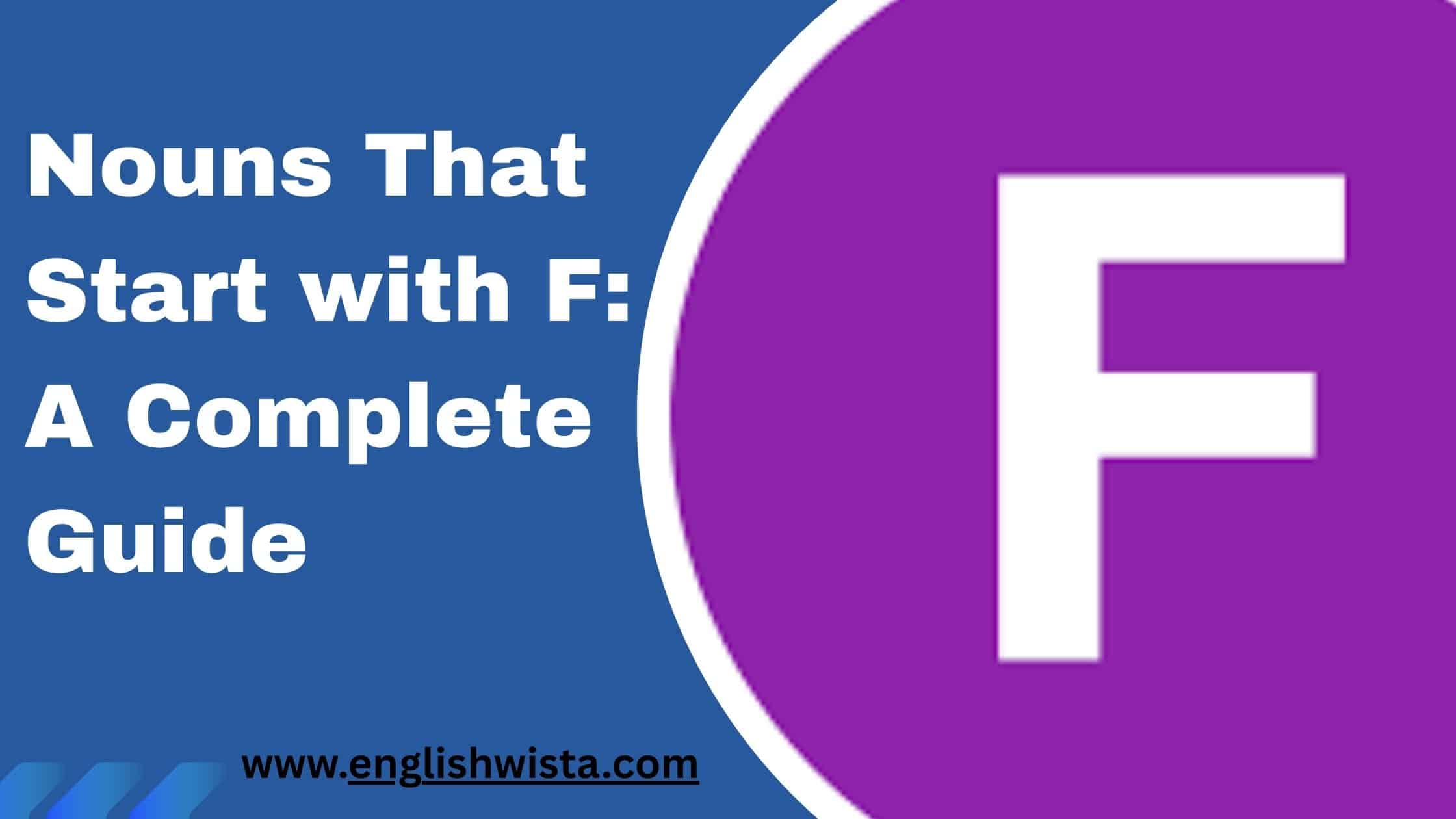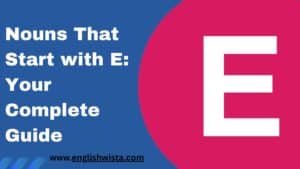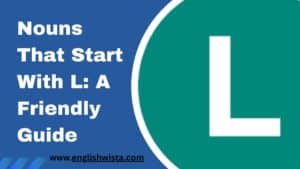Have you ever noticed how many wonderful words in English begin with the letter “F”? From your favorite food to faithful friends, from family gatherings to fantastic adventures, the letter “F” gives us some of the most important and interesting nouns in our language. Whether you’re a beginner learning English or someone who wants to expand your vocabulary, exploring nouns that start with “F” is like opening a treasure chest of useful words. Let’s dive into this fascinating world together and discover how these “F” nouns can make your English more colorful and expressive!
What Are Nouns That Start with F?
Nouns that start with “F” are simply naming words that begin with the letter “F.” Remember, nouns are words that name people, places, things, or ideas. When we add the letter “F” to the beginning, we get an amazing variety of words that we use every single day.
Here are some basic examples to get us started:
- People: father, friend, farmer, firefighter
- Places: farm, forest, factory, France
- Things: fork, flower, phone, football
- Ideas: freedom, friendship, fear, fun
These “F” nouns cover everything from concrete objects you can touch to abstract concepts you can feel or think about. The beauty of “F” nouns is how frequently we use them in everyday conversation.
Common F Nouns You Use Every Day
Let’s start with the “F” nouns that are probably already part of your daily vocabulary. These are words you hear and use so often that you might not even realize they all start with the same letter!
Family and Relationships
- Family – your relatives and loved ones
- Father – male parent
- Friend – someone you like and trust
- Friendship – the relationship between friends
Example sentences:
- “My family loves to have dinner together on Sundays.”
- “Her father works as a teacher at the local school.”
- “I made a new friend at the coffee shop today.”
- “True friendship takes time to develop.”
Food and Eating
- Food – anything you eat for nourishment
- Fork – eating utensil with pointed parts
- Fruit – sweet products from plants like apples and oranges
- Fish – water animals we often eat
Example sentences:
- “The food at that restaurant is absolutely delicious.”
- “Please pass me a clean fork for the salad.”
- “Fresh fruit makes a healthy snack.”
- “We’re having fish for dinner tonight.”
Home and Daily Life
- Floor – the surface you walk on
- Fire – flames that give heat and light
- Furniture – chairs, tables, and other household items
- Fridge – short for refrigerator, keeps food cold
Example sentences:
- “The wooden floor creaks when you walk on it.”
- “We built a cozy fire in the fireplace.”
- “The new furniture looks great in the living room.”
- “There’s some leftover pizza in the fridge.”
F Nouns for Different Categories
Now let’s explore “F” nouns organized by different categories. This will help you see the variety and richness of words that start with this fantastic letter!
Animals and Nature
The natural world gives us many beautiful “F” nouns:
- Fox – clever wild animal with a bushy tail
- Frog – small jumping animal that lives near water
- Fish – creatures that live and breathe in water
- Flamingo – tall pink bird with long legs
- Forest – large area covered with trees
- Flower – colorful part of a plant
- Field – open area of land
Example sentences:
- “The red fox quickly disappeared into the bushes.”
- “A small green frog sat on the lily pad.”
- “The tropical fish swam gracefully in the aquarium.”
- “Pink flamingos stood elegantly in the shallow water.”
- “We went hiking through the dense forest.”
- “She picked a beautiful flower from the garden.”
- “The farmer planted corn in the large field.”
Feelings and Emotions
“F” gives us many words to describe how we feel:
- Fun – enjoyment and pleasure
- Fear – feeling afraid or scared
- Frustration – feeling annoyed or angry
- Fascination – being very interested in something
- Friendship – feeling of liking someone
- Freedom – being able to do what you want
Example sentences:
- “We had so much fun at the amusement park.”
- “Her fear of heights kept her from climbing the ladder.”
- “His frustration showed when the computer crashed again.”
- “Her fascination with astronomy led her to study the stars.”
- “Their friendship has lasted for over twenty years.”
- “The birds sang songs of freedom in the open sky.”
Places and Locations
Where can “F” nouns take you? Let’s see:
- Factory – building where things are made
- Farm – place where crops and animals are raised
- Forest – area with many trees
- France – country in Europe
- Florida – state in the United States
- Fort – strong building for defense
Example sentences:
- “The chocolate factory produces thousands of candy bars daily.”
- “The old farm has been in their family for generations.”
- “The ancient forest is home to many rare species.”
- “France is famous for its delicious food and wine.”
- “Florida has beautiful beaches and warm weather year-round.”
- “The historic fort overlooks the harbor.”
Professional and Work-Related F Nouns
Let’s look at “F” nouns related to jobs and professional life:
Jobs and Professions
- Farmer – person who grows crops or raises animals
- Firefighter – person who puts out fires and helps in emergencies
- Fisherman – person who catches fish
- Florist – person who arranges and sells flowers
- Photographer – person who takes pictures (wait, that starts with “P”!)
- Pharmacist – person who prepares medicines (also starts with “P”!)
Let me correct those:
- Foreman – person who supervises workers
- Financier – person who deals with money and investments
Example sentences:
- “The farmer woke up early to milk the cows.”
- “The brave firefighter rescued the cat from the burning building.”
- “The experienced fisherman caught five large fish today.”
- “The florist created a beautiful bouquet for the wedding.”
- “The foreman checked that all workers were following safety rules.”
- “The financier helped the company make smart investment decisions.”
Workplace Items
- File – folder for organizing papers
- Fax – machine that sends documents electronically
- Folder – container for holding papers
- Form – official paper with spaces to fill in information
Example sentences:
- “Please put this report in the blue file.”
- “Can you send this document by fax to the client?”
- “The important contracts are in the red folder.”
- “You need to fill out this form before your appointment.”
F Nouns in Different Contexts
Understanding how to use “F” nouns correctly in different situations will make your English sound more natural and confident.
Formal vs. Informal Usage
Some “F” nouns work better in formal situations, while others are perfect for casual conversation:
Formal F Nouns:
- Function – a formal event or the purpose of something
- Facility – a building or service provided for a particular purpose
- Framework – a basic structure or system
- Foundation – the base or beginning of something
Informal F Nouns:
- Fun – enjoyment (very casual)
- Fridge – refrigerator (casual version)
- Folks – people (friendly and casual)
- Fuss – unnecessary worry or excitement
Example sentences: Formal: “The foundation will host a charity function at their main facility.” Informal: “The folks next door are making a fuss about nothing in the fridge.”
Singular and Plural Forms
Most “F” nouns follow regular plural rules, but let’s look at some examples:
Regular Plurals (add -s):
- Flower → flowers
- Friend → friends
- Farm → farms
- File → files
Regular Plurals (add -es for words ending in -s, -sh, -ch, -x):
- Fox → foxes
- Fish → fish (irregular – stays the same)
- Focus → focuses or foci (both are correct)
Example sentences:
- “The garden has many colorful flowers blooming.”
- “All of my friends are coming to the party.”
- “Three large farms supply vegetables to the market.”
- “Please organize these files alphabetically.”
- “Two red foxes were spotted near the woods.”
Fun and Interesting F Nouns
Let’s explore some “F” nouns that are particularly interesting, unusual, or fun to use:
Unique and Unusual F Nouns
- Phenomenon – something extraordinary or remarkable (plural: phenomena)
- Fossil – remains of ancient plants or animals preserved in rock
- Fountain – structure that shoots water into the air
- Fabric – cloth or material used to make clothes
- Fiction – stories that are made up, not real
- Fable – short story with a moral lesson, often featuring animals
Example sentences:
- “The northern lights are a beautiful natural phenomenon.”
- “Scientists discovered a dinosaur fossil in the desert.”
- “Children threw coins into the wishing fountain.”
- “This fabric feels soft and comfortable against the skin.”
- “She prefers reading fiction to non-fiction books.”
- “The fable taught children about the importance of honesty.”
Food-Related F Nouns
Food words starting with “F” are especially fun:
- Feast – large, special meal
- Flavor – the taste of something
- Flour – powder made from ground grains, used in baking
- Frosting – sweet covering on cakes
- Fudge – soft, sweet candy
Example sentences:
- “Thanksgiving dinner was a true feast with family and friends.”
- “The chocolate cake has a rich, delicious flavor.”
- “You need two cups of flour to make this bread recipe.”
- “The birthday cake had pink frosting and sprinkles.”
- “Grandmother’s homemade fudge melts in your mouth.”
Abstract F Nouns: Ideas and Concepts
Abstract nouns name things you can’t touch but can think about or feel. “F” gives us many important abstract concepts:
Positive Abstract F Nouns
- Faith – strong belief or trust
- Freedom – ability to act and speak freely
- Fortune – good luck or wealth
- Future – time that hasn’t happened yet
- Fulfillment – feeling satisfied and complete
Example sentences:
- “She has strong faith in her team’s ability to succeed.”
- “Freedom of speech is an important right in many countries.”
- “Good fortune smiled on them during their travels.”
- “The future looks bright for renewable energy.”
- “Helping others gives him a sense of fulfillment.”
Challenging Abstract F Nouns
- Failure – not succeeding at something
- Fear – feeling of being afraid
- Frustration – feeling annoyed when things don’t work
- Fault – responsibility for something wrong
Example sentences:
- “Failure is often a stepping stone to success.”
- “Her fear of public speaking held her back from promotions.”
- “Traffic jams cause frustration for many commuters.”
- “The accident was not entirely his fault.”
Cultural and International F Nouns
“F” nouns appear in many cultures and languages, often keeping their original forms:
Food from Different Cultures
- Falafel – Middle Eastern fried chickpea balls
- Fondue – Swiss dish of melted cheese or chocolate
- Fajitas – Mexican dish with grilled meat and vegetables
Cultural Concepts
- Festival – celebration or special event
- Folklore – traditional stories and beliefs
- Fiesta – Spanish word for party or celebration
Example sentences:
- “The falafel was served with fresh vegetables and yogurt sauce.”
- “We enjoyed cheese fondue at the Swiss restaurant.”
- “The chicken fajitas came sizzling on a hot plate.”
- “The music festival attracted thousands of visitors.”
- “Local folklore tells stories of ancient heroes.”
- “The town’s annual fiesta celebrates its founding.”
Tips for Learning and Remembering F Nouns
Here are some practical strategies to help you learn and remember “F” nouns more effectively:
Memory Techniques
- Group by Category: Learn “F” nouns in groups (food words, family words, etc.)
- Make Associations: Connect new “F” nouns with things you already know
- Use Them Daily: Try to use new “F” nouns in your everyday conversation
- Create Stories: Make up short stories using several “F” nouns together
Practice Exercises
Try these simple exercises:
- List Making: Write down all the “F” nouns you can think of in two minutes
- Sentence Building: Create sentences using three different “F” nouns
- Category Games: Name five “F” nouns for each category (food, family, places)
Example story using multiple F nouns: “The friendly farmer and his family lived on a beautiful farm near a peaceful forest. Every Friday, they would have a feast featuring fresh fruit, fish, and homemade fudge. Their faithful dog would sit by the fireplace, and father would tell fascinating fables while mother arranged flowers in a vase.”
Common Mistakes with F Nouns
Let’s address some common errors people make when using “F” nouns:
Pronunciation Issues
Some “F” nouns can be tricky to pronounce:
- Phenomenon (fi-NOM-uh-non) – not “fee-NOM-uh-non”
- February (FEB-roo-air-ee) – don’t skip the first “r”
- Foreign (FOR-in) – not “for-EE-gin”
Spelling Challenges
- Friend – remember the “i before e” rule
- Forty – no “u” like in “four”
- Fascinating – double “s” in the middle
Usage Confusion
- Fun vs. Funny: “Fun” is a noun (we had fun), “funny” is an adjective (that’s funny)
- Floor vs. Flour: “Floor” is what you walk on, “flour” is for baking
- Fare vs. Fair: “Fare” is the price of travel, “fair” means just or a carnival
Building Your F Noun Vocabulary
As you continue learning English, keep expanding your collection of “F” nouns. Here are some strategies:
Read Regularly
When you encounter new “F” nouns in books, articles, or websites, write them down and look up their meanings.
Use Technology
- Dictionary apps can help you learn pronunciation
- Vocabulary apps often organize words by starting letters
- Online games make learning fun and interactive
Practice in Context
Don’t just memorize lists. Use “F” nouns in real situations:
- Describe your favorite food using “F” nouns
- Talk about your family using appropriate “F” words
- Discuss your future plans incorporating relevant “F” nouns
The Fantastic Future of Your F Noun Knowledge
Learning nouns that start with “F” opens up a whole world of expression in English. These words help you describe your feelings, talk about your family, discuss your favorite foods, and express complex ideas about freedom and the future.
Remember, language learning is a journey, not a destination. Every “F” noun you learn adds another tool to your English communication toolkit. Whether you’re describing a faithful friend, planning a fun festival, or discussing your future career as a firefighter or farmer, these “F” nouns will serve you well.
The key to mastering “F” nouns – like all vocabulary – is consistent practice and real-world application. Don’t worry about memorizing every single word at once. Focus on the ones most relevant to your daily life, and gradually expand your knowledge as you feel more confident.
Start with the basics like family, friend, food, and fun. Then branch out to more specific nouns like festival, fabric, and phenomenon. Before you know it, you’ll have a fantastic foundation of “F” nouns that will make your English more fluent, expressive, and natural.
Keep practicing, stay curious, and most importantly, have fun with your language learning journey. The letter “F” has given English speakers a treasure trove of useful, interesting, and beautiful nouns. Now it’s time for you to make them part of your own English adventure!



